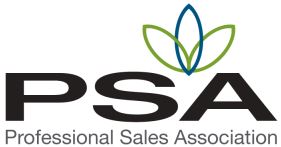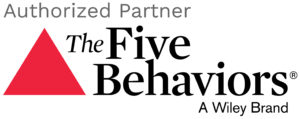Will Rogers said, “You never have a second chance to make a first impression.” Often salespeople can use one seemingly innocent word that immediately defines a conversation as a sales-pitch and triggers the defensive shields of suspicion in the prospect. Words have meaning and we want to make sure the words we use as content accurately represent our desired intent. Just as important, words hold different meanings and significance based on one’s past experiences. If we use one of these “trigger” words, we could easily insult a prospect and devalue the service we provide. Here are the 7 in no particular order:
Help. When someone calls me and offers to help me, my first reaction is, “What makes you think I need your help?” “What am I doing wrong?” “What makes you think I need saving?” “What makes you think I want your help?” Ok, I may be a little hyper sensitive, but can you see how using “help” positions your prospect as a victim, a damsel in distress, and you as the white knight to come to save her? Instead of saying, “We help companies….” say, “We work with companies….” This puts you on an equal playing field and makes it easier for your prospects to make a commitment of mutual consent in each step of the sales process without insulting them.
Partner. The last thing I need is another partner; another obligation to consider in every decision. This type of relationship says I have to work harder without generating revenue. Better yet, it is used by service providers that bill me, so it costs me money. But they position the relationship as a partnership. I’m looking for someone that is willing to commit to serving. Don’t say, “We will partner with you to help your clients…” Say, “We will commit to serving your clients to….without creating a greater obligation for you.” If money is exchanged say, “We will commit to work with you to…”
Try. Nothing says commitment like try. “I’ll try to get there by 7 a.m.” “I’ll try to get it done by Thursday.” May I place a bet? Do you think I’m putting it on a 7 a.m. arrival or a Thursday completion? Not so much. “Oh, but I’m not saying that to a prospect or client.” Oh, good, you just want the people in your referral network to know about your ‘try’ level of commitment. “I will have it done by 7 a.m. on Thursday.” ‘Nough said!
Yup or No Problem. When a customer that admittedly requested assistance says, “Thank you for your help”, and the salesperson returns that expressed gratitude with “Yup” or “No Problem”, it devalues the appreciation the customer is showing and the efforts the salesperson went through to solve a problem. When I remodeled my bathroom, I made many trips to the big box stores and when the staff returned my thank you with, “you’re welcome”, or “my pleasure” or “happy to help”, or “anytime, that’s what we are here for”, I felt so much better about the visit versus hearing ‘Yup’ like I was inconveniencing the sales team.
Consumer. Use Customer, Client, Guest, Members, etc. Worms are consumers. They consume dirt. Consumer is a sterile, intellectual, faceless word without a personality, a smile or someone that can make or break your future in business. People are emotional.
I Think. Duh! No kidding. I know, you just said it. Everything we say we have thought of – most of the time. We don’t need to preface something with “I think.” It’s like saying, “To be honest with you.” I sure hope so. Do I need to hear that in front of everything you are saying to know the difference from when you are lying? When we preface a statement with “I think” we are emphasizing others may not think the same and prompting them to challenge our statement. Just omit it. Your sentence will have the same meaning and the listeners will focus on the message and not the messenger.
Hope. “I hope you enjoy yourself.” Really? How much have you invested in that hope? Who will determine the outcome? If you invested nothing, you have little influence on the outcome. The outcome will be decided by the bearer of your hope. Instead, say, “My goal is for you to enjoy yourself while you are here.” This says you have a vested interest in their experience and have gone through some intentional preparation to meet the desired goal – your goal. “I hope you come back”, sounds wishful or desperate. “My goal is for you to want to return in the next 30 days”, conveys an intentional outcome.
There are some sales books and seasoned training programs that include these words in their scripts. The market continues to change. Prospects change every time they go through the buying process. Salespeople can use this constant change to their advantage if their words are mindful about maintaining the prospects self-respect and the value of their service and product, which will translate into a sense of purpose and meaning for the salesperson in every conversation.








Good morning, Scott:
As always, great stuff!!! I’ll be sure to pass this along to my sales reps in Phoenix and Milwaukee!
Best wishes for continued success, health, and happiness in 2014!!
I look forward to seeing you sometime soon!
Joe
Thanks Joe. An honor to share this position with you.
Scott great words for everyone. As an examiner for Wellcoaches I often hear the examinee say, “I think you’d be successful….” I want them to rock me off my socks and say, “I’m 100% confident you will be successful…love tossing away the word think away. Great advice! Chere!
Thanks Chere. That support makes a big difference in another. We need more fans in the stands!
Awesome, as always Scott.
Some of these have made their way into TNC customer service training for our employees. We have abolished “Yup” and “No Problem” thanks to you.
Thanks Nick. That is a BIG one. Your customers will notice the difference.
Hey Scott! Great post! I love how practical & easily applicable it is. WORDS….it’s is amazing their power! Keep up the great job!
Thanks Anthony. Stay tuned for more!
THX, Scott, for this pithy post that reminds us of the power of words & the value of expressing ourselves—verbally and in writing—in a cogent manner.
Thanks Sue, I was in a bit of a mood writing these out. I’m starting a list of another 7 words. First one is ” I don’t care.” How could anyone say that to a prospect. Of course salespeople ‘care’, however some aspects of a decision are non-factors. Better to say “I don’t mind,” or “it makes no difference.” But to come out and say to a prospect “I don’t care” leaves a mark.
Great Stuff. Thanks for sharing your insights. Keep it coming.
Thanks Judy!
Add this one. “I feel…..” I cannot argue feelings. They are personal. They are not logical presentations of assumptions and analyses. They are your feelings. Using I feel in place of I think, just frustrates everybody and most people are not concerned with feelings unless you are an HR person taking a complaint from someone. Go back to the reasoning in the I think box for direction on how to respond instead of, “I feel”.
I’m not sure I share your position. I want people to say “I feel…” because they are telling me I’m getting to an emotional level where they make decisions. People buy emotionally and justify them logically. If I hear them say “I feel. …” I know It getting close to a decision. Thanks Rob for your comments.
Scott you are right on, especially with the” I think” and the “yup, no problem”. My Dad always said he never wanted to work with someone who thinks they can …. But someone who knows they can. I want to work with someone who is confident enough to not have to coach/hedge their abilities with thinking. One wants to assume they already thought about it because the are good! If they didn’t they should have!
I cringe every time my thank yous are responded to with a yup or no problem. If your service was no problem then why am I paying you for it or even thanking you for it? Yup or no problem demeans the value of the complete exchange. Anyone who responds with such little regard devalues the entire transaction.